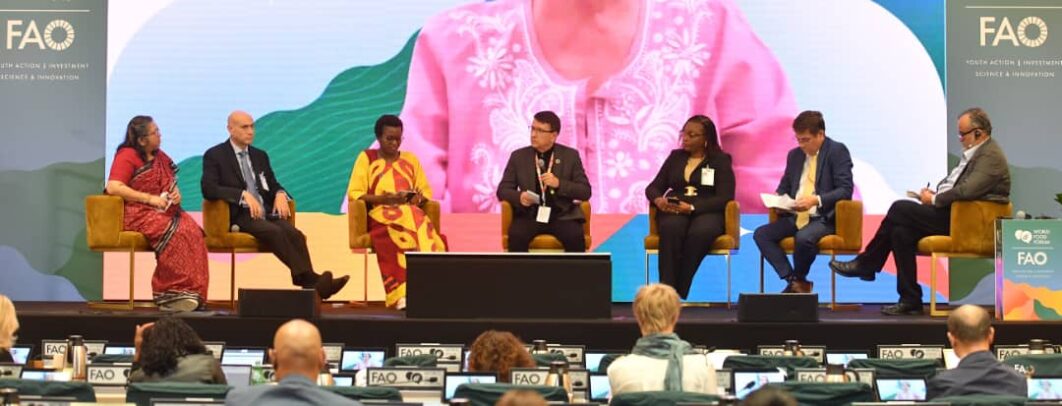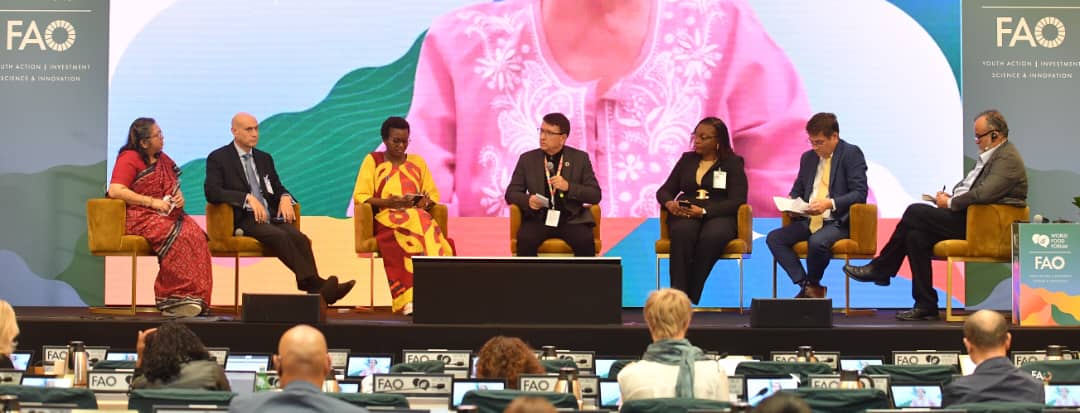
Heifer international has called on global leaders, and private sectors to enhance innovation and partnerships at the world food forum 2024, held in Rome.
During the World Food Forum 2024 in Rome, the Senior Vice President of Africa Programs at Heifer International Adesuwa Ifedi participated in a panel discussion titled “From Start-Up to Scale: Pathways to Zero Hunger,” where she emphasised the urgent need for joint efforts between development organisations, innovators, and funding partners to scale agricultural innovations that address food security challenges across the continent.
“We cannot innovate in silos,” Ifedi stressed, highlighting the need for a connected ecosystem where global and local innovators collaborate to leverage their respective strengths. She noted that local innovators often understand community needs but lack the technological expertise to scale solutions, while global innovators possess advanced knowledge but lack local context.
Ifedi also reveal that the Organisation suffered adaptation challenges, with local innovators but the organisation was able to leverage on the strength of both the local and international innovators.
“We also have an adaptation challenge. At Heifer, we work with a lot of local innovators. Local innovators understand context and innovating from ground up, but often don’t have the relevant technology know-how to disrupt effectively. Global innovators, on the other hand, have access to all the best ways of thinking and disrupting and integrating technology; but they often lack local context. So, for innovation adaptation to be effective, the local and international innovators must come together to leverage the strengths of both.” She said
The forum, organised by the UN’s Food and Agriculture Organization (FAO), brought together agrifood stakeholders from around the world under the theme “Good Food for All, for Today and Tomorrow,” focusing on creating sustainable and resilient food systems.
Ifedi also pointed to the importance of collaborative financing, citing Heifer’s partnership with agritech startup Hello Tractor as an example. Heifer’s catalytic investment helped scale Hello Tractor’s mechanisation services for African farmers, attracting commercial capital and expanding the reach of innovative solutions. She further encouraged stakeholders to rethink funding models and invest creatively to drive agricultural innovation at scale.
Giving an example of how increased collaborative funding takes innovations to scale at the last mile, Ms. Ifedi showed how Heifer’s partnership with Hello Tractor, an agritech startup that emerged a regional winner of Heifer’s influential agribusiness competition Agriculture, Youth and Technology (AYuTe) Africa NextGen — scaled mechanization in the continent.
Launched in 2021, Heifer’s AYuTe Africa NextGen initiative has been pivotal in supporting young African agritech entrepreneurs, providing grants and ongoing mentorship to develop and scale solutions for smallholder farmers.
“AYuTe helps us identify innovators working on reaching the last mile and then we use our catalytic financing to test out that innovation,” she said. “The catalytic financing we did over a period of three years in Hello Tractor has attracted commercial capital which has helped to scale the innovation. Catalytic investment will go in first where commercial capital will not go, but we need a buffet of both for innovation to really scale in the last mile.” she said.
READ ALSO: World Food Day: Nigeria’s food crisis unlikely to end soon, say stakeholders
Ifedi concluded by applauding FAO’s role in fostering collaboration to address agriculture’s pressing challenges, urging stakeholders to continue leveraging collective expertise to rethink agricultural innovation for the future.
“We are hoping to see a more collaborative ecosystem that leverages each other’s knowledge, experience, and/or expertise as we rethink innovation in agriculture,” she said.






